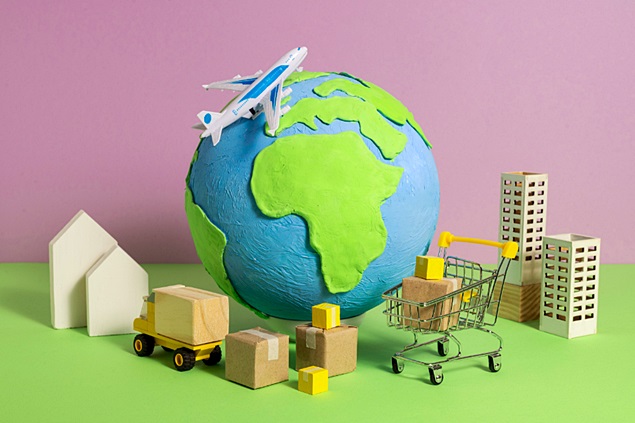1389

According to a draft proposal cited by Euractiv, the EU will prioritize the conclusion of a long-delayed trade agreement with the Mercosur bloc of South America and closer institutional cooperation as it seeks new allies to reduce economic dependencies on China and counter Russia.
The Mercosur Treaty back on the agenda
After years of relative absence, relations with Latin America and the Caribbean have returned to the EU's agenda as the EU fears losing influence in the region as trade agreements weaken.
The draft proposal from the European Commission calls for more high-level meetings between the EU and CELAC, progress on outstanding trade agreements, and more investments through the EU's Global Gateway strategy, which was designed to rival China's Belt and Road Initiative (BRI).
Ensuring access to raw materials and other key resources in Latin America amid "growing geopolitical challenges" is a priority in the proposal, which is set to be presented by the EU's chief diplomat, Josep Borrell, on Wednesday (June 7).
"By strengthening the partnership between two regions that are among the closest aligned in the world in terms of interests and values, the EU and ALC (Latin America and the Caribbean) will be better placed to face global challenges," the latest version states.
Enhancing ties with Latin America would enable both sides to reduce "excessive dependence" on third countries and help the EU "mitigate risks" vis-à-vis China, it adds.
Latin America is a major producer of copper, hosting most of the world's known lithium deposits, as well as significant quantities of oil and natural gas, all of which are essential for the EU's green energy transition.
New agreements
Brussels aims to sign agreements with countries in Latin America as outlined in the EU's new strategy on critical raw materials, the document states.
This would address the risks to supply chains highlighted by shortages during the pandemic and the energy crisis resulting from Russia's invasion of Ukraine.
It also sets out a roadmap for concluding multiple free trade and partnership agreements with countries in Latin America and boosting bilateral relations with Brazil and Mexico.
Potential trade agreements would be based on a EU program of investment in ecological and digital transition projects in Latin America, which is expected to be approved at a summit between the EU and the Community of Latin American and Caribbean States (CELAC) in July, the first such meeting since 2015.
The drive to improve relations comes as Europe begins to seek new energy and food suppliers following the start of the conflict between Russia and Ukraine.
The European Commission's draft proposal specifically mentions the stalled EU-Mercosur trade deal - Argentina, Brazil, Paraguay, and Uruguay - as a key feature of the diplomatic offensive toward Latin American countries.
"A change of pace"
"The conclusion of the EU-Mercosur agreement would mark a change of pace in strengthening EU-ALC relations," the document states.
A EU-Mercosur trade pact was agreed in principle in 2019 but has been held up by national parliaments, including the Netherlands and Austria, which are reluctant to compromise on environmental standards.
France, which faced internal opposition to the agreement from local farmers, has since stated that it wants the Mercosur side to accept various additional commitments, particularly regarding compliance with EU rules on deforestation, before Paris lends its support.
However, the EU and the majority of EU member states fear that further delays to Mercosur and other trade agreements could push Latin America closer to China.
The EU wants Latin America to take on additional commitments regarding environmental protection in a parallel letter to the agreement.
Diplomatic approach
The EU is set to host a summit with CELAC in July in Brussels, which is expected to showcase political unity between the "natural partners," as Borrell previously described them.
But it doesn't end there, the Commission's draft proposal envisions a "renewed strategic partnership" between the two regions.
"What we are proposing is a different, more modern partnership - we will be partners of choice," said a senior official ahead of the proposal's presentation.
However, differences over Russia's invasion of Ukraine have revealed underlying tensions between the two blocs.
Politically, the governments of Latin America and the Caribbean are significant when it comes to voting on resolutions concerning Russia at the United Nations General Assembly, a forum the EU has used to lobby against Russia's illegal invasion of Ukraine.
The principle of non-intervention
But the principle of non-intervention in foreign affairs runs deep in Latin America. The uncomfortable position of Latin America regarding Russia's invasion was highlighted when Argentine President Alberto Fernandez and then-Brazilian President Jair Bolsonaro decided to meet with Russian President Vladimir Putin just days before Moscow's forces crossed the border into Ukraine.
Brazil's new President Luiz Inacio Lula da Silva angered many in the West in April when he called on American and European allies to stop supplying arms to Ukraine, saying they were prolonging the war.
To bring the two blocs closer beyond trade, the EU plans to hold more high-level meetings with Latin America, including bilateral meetings with Brazil and Mexico and meetings of foreign ministers.
To enhance the EU-CELAC dialogue, the objective is to "establish a permanent EU-CELAC coordination mechanism," a structure that could bring high-level officials together several times this year, the document states.
"This would allow us to address a crisis like Ukraine, facilitate the activity of foreign ministers, and fill a gap that has existed in recent years," said another senior EU official.





